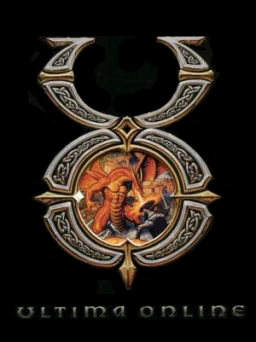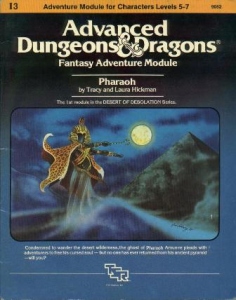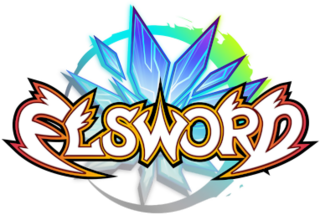A massively multiplayer online role-playing game (MMORPG) is a video game that combines aspects of a role-playing video game and a massively multiplayer online game.

Ultima Online (UO) is a fantasy massively multiplayer online role-playing game (MMORPG) released on September 24, 1997 by Origin Systems.

Eve Online is a space-based, persistent-world massively-multiplayer online role-playing game (MMORPG) developed and published by CCP Games. Players of Eve Online can participate in a number of in-game professions and activities, including mining, piracy, manufacturing, trading, exploration, and combat. The game contains a total of 7,800 star systems that can be visited by players.
A massively multiplayer online game is an online video game with a large number of players to interact in the same online game world. MMOs usually feature a huge, persistent open world, although there are games that differ. These games can be found for most network-capable platforms, including the personal computer, video game console, or smartphones and other mobile devices.
Tibia is a multiplayer online role-playing game (MMORPG) released in 1997, developed and published by CipSoft. It is one of the earliest and longest-running MMORPGs, reaching its peak popularity in 2007. The game is free to play but players may pay to upgrade to a premium account. Tibia is a two-dimensional tile-based game set in a fantasy world with pixel art graphics and a top-down perspective.
Wurm Online is a 3D massively multiplayer online video game (MMO) developed by Code Club AB in Motala, Sweden. Development started in 2003 by friends Rolf Jansson and Markus Persson, and was released for personal computers using Java in 2006. Both player versus player and realm versus realm combat are possible in the game.
Grinding is a term within video game culture that describes time spent in the game in which a player repeats a general task in order to gain rewards like in-game currency, in-game experience, player stats or other reward types. The method was first seen in dnd, and though there are many adaptations of it, it has since become an entire category of gameplay.

Guild Wars is a multiplayer online action role-playing game developed by ArenaNet, a subsidiary of South Korean game publisher NCSOFT, and released in 2005. As the original installment of the Guild Wars series, its campaign was retroactively titled Prophecies to differentiate it from the content of subsequent releases. The game contains a co-operative role-playing portion and a competitive Player versus Player (PvP) portion. In PvP, players may use either their co-operative characters or PvP-exclusive characters who are inherently maximum level and have account-based access to unlocked content.
The history of massively multiplayer online games spans over thirty years and hundreds of massively multiplayer online games (MMOG) titles. The origin and influence on MMO games stems from MUDs, Dungeons & Dragons (D&D) and earlier social games.

Desert of Desolation is a compilation adventure module published by TSR for the Dungeons & Dragons (D&D) fantasy roleplaying game. It combines three previously published individual modules: Pharaoh, Oasis of the White Palm, and Lost Tomb of Martek. The modules were made for use with the first edition Advanced Dungeons & Dragons (AD&D) rules. Pharaoh was created by Tracy and Laura Hickman soon after the couple married in 1977, and published by TSR in 1982. Oasis of the White Palm was a collaboration between Tracy Hickman and Philip Meyers, and Hickman wrote the Lost Tomb of Martek on his own; both were printed in 1983.

Turf Battles, often referred to as TB, is a massively multiplayer online role-playing game (MMORPG). It is IMAZIC's first released game first introduced in 2002. Turf Battles takes place within the world of Fomalhaut, years after a major war. Originally published under HyperEngines LLC, the open beta was announced around September 2005. Due to many technical issues, the game ultimately failed, and Hyper Engines LLC closed its operations mid-2008, but due to popular player support, the title was picked up for the American audience by Aeria Games and Entertainment, who announced Turf Battles in December 2008. After three closed betas, Turf Battles has gone into a final Beta Stress Test, which moved into an open beta. Aeria Games closed down the Turf Battles servers in June 2010, citing several technical issues that continued during the development.

Darkfall was a massively multiplayer online role-playing game (MMORPG) developed by Aventurine SA that combined real-time action and strategy in a fantasy setting. The game featured unrestricted PvP, full looting, a large, dynamic game world, and a player-skill dependent combat system free of the class and level systems that typify most MMORPGs. Darkfall had a 3D world environment and contained mild violence. The official Darkfall servers were closed on 15 November 2012.

Artix Entertainment, LLC is an independent video game developer and publisher founded by Adam Bohn in October 2002. It is best known for creating browser-based role-playing video games—including AdventureQuest, DragonFable, MechQuest, and AdventureQuest Worlds—using Adobe Flash. Following the end of life of Adobe Flash Player in 2021, Artix developed a standalone launcher for personal computers that includes many of the company's popular Flash-based games, most of which continue to receive content updates.
Zentia was a free-to-play global MMORPG that takes place in a Chinese fairy tale world, described by its creators as "charmingly hardcore". The game was jointly produced by Changyou and Pixel Soft. Pixel Soft originally debuted the game in China. Changyou implemented a major revamp for North American audiences, which, among other changes, introduced more humor and social aspects. Open Beta for the North American version began on October 13, 2010. The North American version of Zentia officially closed at 11:59 PM PDT on August 13, 2012.

Elsword (Korean: 엘소드) is a free-to-play, 2.5D action MMORPG developed by the South Korean company KOG Studios. It features real-time action gameplay and includes both player vs. environment and player vs. player modes. There are fourteen playable characters within the game, each with unique backstories and distinct abilities. While playing the game is free, some items and costumes can be purchased through an in-game "Item Mall" using real currency. The game was originally made with the intention of being the spiritual successor to Grand Chase by upgrading the graphics from 2D to 2.5D.

RaiderZ was a massively multiplayer online role-playing game (MMORPG) developed by the now defunct Korean developer MAIET Entertainment. It was published in North America in November 2012 by Perfect World Entertainment. The game is free-to-play and no monthly subscription fee is required due to the service being funded by real money transactions via the in-game cash shop.

Ashen Empires is a two-dimensional massively multiplayer online role-playing game created by American developer Jason "Lothgar" Ely and now owned by Iron Will Games. It was released for a free, open beta in 2002 and later officially released in 2003.
Since the origin of video games in the early 1970s, the video game industry, the players, and surrounding culture have spawned a wide range of technical and slang terms.

Villagers & Heroes is a free-to-play online massively multiplayer online role-playing game (MMORPG) created by American developer Mad Otter Games. Originally titled A Mystical Land, it was released on October 27, 2011 as a multi-platform game using the Portalarium Player-Plug-In by Richard Garriott’s social media games start-up Portalarium, it was later replaced by a standalone C++ client using the Torque-3D engine.
Ever, Jane: The Virtual World of Jane Austen was a massively multiplayer online role-playing game (MMORPG) developed by 3 Turns Production. It was inspired by the work of Jane Austen and the settings of her work.











